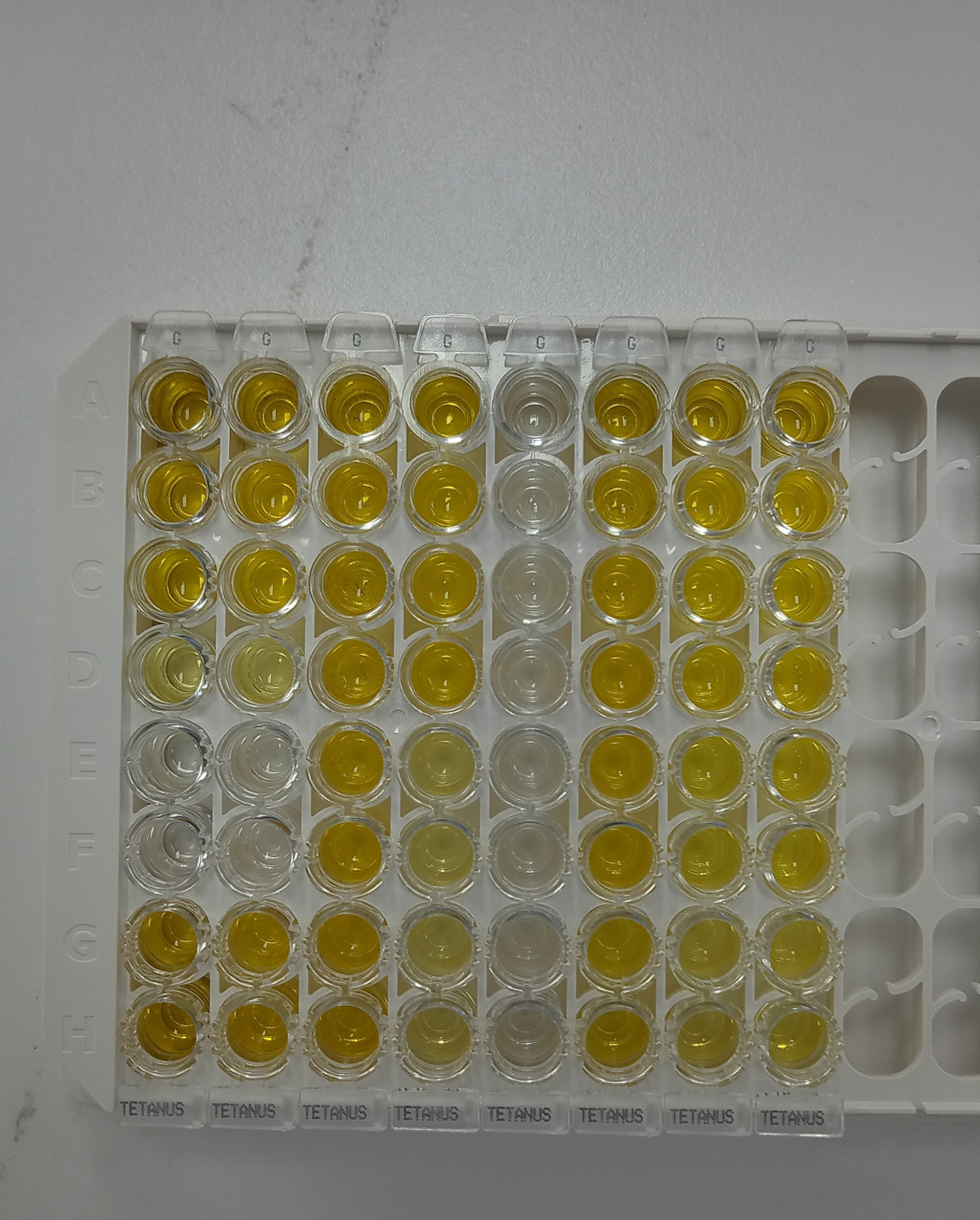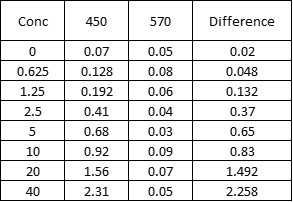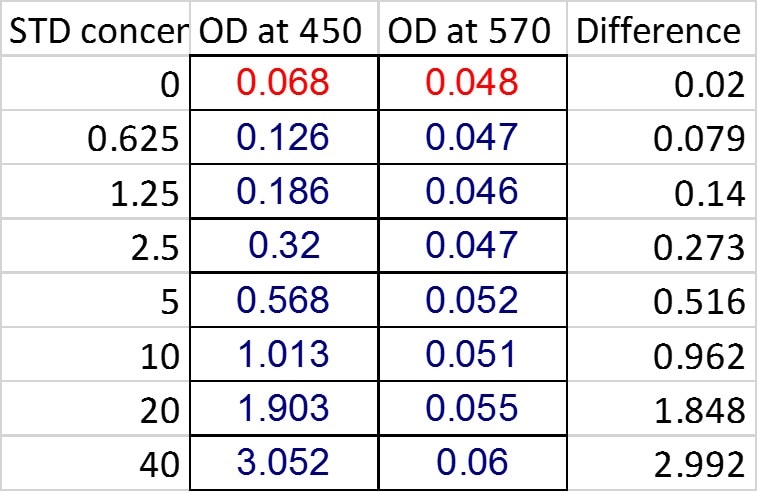Human Proprotein Convertase 9/PCSK9 Quantikine ELISA Kit
Human Proprotein Convertase 9/PCSK9 Quantikine ELISA Kit Summary
Sample Values
Serum/Plasma - Samples from apparently healthy volunteers were evaluated for the presence of human PCSK9 in this assay. No medical histories were available for the donors used in this study.| Sample Type | Mean (ng/mL) | Range (ng/mL) | Standard Deviation (ng/mL) |
| Serum (n=37) | 313 | 177-460 | 71.5 |
| EDTA plasma (n=37) | 308 | 160-521 | 73.3 |
| Heparin plasma (n=37) | 315 | 159-547 | 81.7 |
Cell Culture Supernates - HepG2 human hepatocellular carcinoma cells were cultured in DMEM supplemented with 10% fetal bovine serum, 2 mM L-glutamine, 100 U/mL penicillin, and 100 μg/mL streptomycin sulfate. An aliquot of the cell culture supernate was removed, assayed for human PCSK9, and measured 47.2 ng/mL.
Product Summary
Precision
Cell Culture Supernates, Cell Lysates, Serum, EDTA Plasma, Heparin Plasma
| Intra-Assay Precision | Inter-Assay Precision | |||||
|---|---|---|---|---|---|---|
| Sample | 1 | 2 | 3 | 1 | 2 | 3 |
| n | 20 | 20 | 20 | 40 | 40 | 40 |
| Mean (ng/mL) | 4.82 | 14 | 27.7 | 4.64 | 14.5 | 27.9 |
| Standard Deviation | 0.196 | 0.795 | 1.81 | 0.276 | 0.629 | 1.13 |
| CV% | 4.1 | 5.7 | 6.5 | 6 | 4.3 | 4.1 |
Recovery
The recovery of PCSK9 spiked to levels throughout the range of the assay was evaluated.
| Sample Type | Average % Recovery | Range % |
|---|---|---|
| Cell Culture Media (n=4) | 107 | 100-111 |
Linearity
Scientific Data
Product Datasheets
Preparation and Storage
Background: Fibroblast Activation Protein alpha/FAP
Proprotein convertase subtilisin kexin 9 (PCSK9), also named neural apoptosis-regulated convertase 1 (NARC-1), is a member of the proteinase K subfamily of subtilisin-related serine endoproteases. The full-length protein has 692 amino acids, including a signal peptide, a pro- domain, and a catalytic domain. PCSK9 is highly expressed in the liver, intestine, and kidney. It is initially synthesized as a soluble 74 kDa precursor protein. In the endoplasmic reticulum, it undergoes autocatalytic intramolecular cleavage to generate a 14 kDa pro- domain and a 60 kDa catalytic domain. These two domains remain associated when PCSK9 is secreted outside the cells (1-3). The primary physiologic function of PCSK9 is to mediate the degradation of low density lipoprotein receptor (LDL R). Early observations indicated that gain-of-function missense mutations in the PCSK9 gene can cause an autosomal dominant form of hypercholesterolemia (4, 5). The expression of PCSK9 was observed to be up-regulated by the sterol regulatory element binding proteins (SREBPs), a family of transcription factors that are responsible for the upregulation of genes involved in cholesterol and fatty acid metabolism, such as the LDL R gene (6, 7). Further experimental evidence revealed that in mice, when the PCSK9 gene was knocked out, the number of LDL R in hepatocytes increased, whereas when PCSK9 was over-expressed, the amount of LDL R protein was reduced in the liver (8, 9). In humans, genetic analyses have shown that individuals who have nonsense or loss-of-function mutations in the PCSK9 gene have significantly lower plasma LDL cholesterol levels (10, 11). These investigations clearly indicated that PCSK9 plays a key role in reducing the hepatic LDL R levels. Recently, the underlying mechanism has been uncovered: under normal physiologic conditions, the LDL R is internalized on the cell surface and directed to the endosomes in order to be recycled back to the cell surface. PCSK9 binds to the EGF domain of the LDL R and prevents LDL R from being sorted to the endosomes. Instead, the PCSK9/LDL R complex is redistributed to the lysosomes for degradation (12-14). As such, PCSK9 regulates the amount of LDL R in the circulation and modulates cholesterol levels. Serum PCSK9 concentrations have been found to be directly associated with cholesterol levels (15, 16). Since individuals with loss-of-function PCSK9 mutations have strikingly reduced risk of coronary heart diseases, PCSK9 has become an attractive drug target in recent years (17, 18). One approach is to generate small molecules that are able to interfere with PCSK9 autoactivation and its interaction with LDL R. Other approaches aiming to reduce the amounts of PCSK9 in the circulation, such as small interfering RNAs (siRNAs), have also shown promise (19, 20).
Assay Procedure
Refer to the product- Prepare all reagents, standard dilutions, and samples as directed in the product insert.
- Remove excess microplate strips from the plate frame, return them to the foil pouch containing the desiccant pack, and reseal.
- Add 100 µL of Assay Diluent to each well.
- Add 50 µL of Standard, control, or sample to each well. Cover with a plate sealer, and incubate at room temperature for 2 hours.
- Aspirate each well and wash, repeating the process 3 times for a total of 4 washes.
- Add 200 µL of Conjugate to each well. Cover with a new plate sealer, and incubate at room temperature for 2 hours.
- Aspirate and wash 4 times.
- Add 200 µL Substrate Solution to each well. Incubate at room temperature for 30 minutes. PROTECT FROM LIGHT.
- Add 50 µL of Stop Solution to each well. Read at 450 nm within 30 minutes. Set wavelength correction to 540 nm or 570 nm.
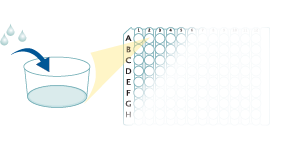


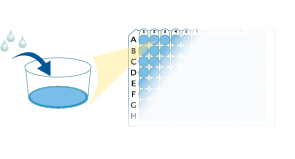
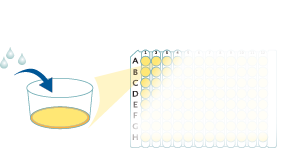
Citations for Human Proprotein Convertase 9/PCSK9 Quantikine ELISA Kit
R&D Systems personnel manually curate a database that contains references using R&D Systems products. The data collected includes not only links to publications in PubMed, but also provides information about sample types, species, and experimental conditions.
49
Citations: Showing 1 - 10
Filter your results:
Filter by:
-
A Type II-B Cas9 nuclease with minimized off-targets and reduced chromosomal translocations in vivo
Authors: Bestas, B;Wimberger, S;Degtev, D;Madsen, A;Rottner, AK;Karlsson, F;Naumenko, S;Callahan, M;Touza, JL;Francescatto, M;Möller, CI;Badertscher, L;Li, S;Cerboni, S;Selfjord, N;Ericson, E;Gordon, E;Firth, M;Chylinski, K;Taheri-Ghahfarokhi, A;Bohlooly-Y, M;Snowden, M;Pangalos, M;Nuttall, B;Akcakaya, P;Sienski, G;Maresca, M;
Nature communications
Species: Mouse
Sample Types: Plasma
-
Obicetrapib plus ezetimibe as an adjunct to high-intensity statin therapy: A randomized phase 2 trial
Authors: Ballantyne, CM;Ditmarsch, M;Kastelein, JJ;Nelson, AJ;Kling, D;Hsieh, A;Curcio, DL;Maki, KC;Davidson, MH;Nicholls, SJ;
Journal of clinical lipidology
Species: Human
Sample Types:
-
Functional Characterization of p.(Arg160Gln) PCSK9 Variant Accidentally Found in a Hypercholesterolemic Subject
Authors: A Larrea-Seb, C Trenti, S Jebari-Ben, S Bertolini, S Calandra, EA Negri, E Bonelli, A Benito-Vic, L Uraga-Grac, C Martín, T Fasano
International Journal of Molecular Sciences, 2023-02-07;24(4):.
Species: Human
Sample Types: Cell Culture Supernates
-
Detrimental effects of PCSK9 loss-of-function in the pediatric host response to sepsis are mediated through independent influence on Angiopoietin-1
Authors: Atreya MR, Cvijanovich NZ, Fitzgerald JC et al.
Research square
Species: Human
Sample Types: Serum
-
Energy Homeostasis Gene Nucleotide Variants and Survival of Hemodialysis Patients-A Genetic Cohort Study
Authors: MK ?widerska, A Mostowska, D Skrypnik, PP Jagodzi?sk, P Bogda?ski, AE Grzegorzew
Journal of Clinical Medicine, 2022-09-18;11(18):.
Species: Human
Sample Types: Plasma
-
Plasma Levels of Proprotein Convertase Subtilisin/Kexin Type 9 Are Inversely Associated with N-Terminal Pro B-Type Natriuretic Peptide in Older Men and Women
Authors: F Spannella, F Giulietti, R Galeazzi, A Passarelli, S Re, C Di Pentima, M Allevi, P Magni, R Sarzani
Biomedicines, 2022-08-12;10(8):.
Species: Human
Sample Types: Plasma
-
Peri-event plasma PCSK9 and hsCRP after an acute myocardial infarction correlate with early deterioration of left ventricular ejection fraction: a cohort study
Authors: LS Silva-Berm, A Vargas-Vil, CA Sánchez-Va, AC Palacio, AF Buitrago, CO Mendivil
Oncogene, 2022-07-21;21(1):61.
Species: Human
Sample Types: Plasma
-
Serum and Vascular Stiffness Biomarkers Associated with the Severity of Degenerative Aortic Valve Stenosis and Cardiovascular Outcomes
Authors: J Baran, ? Niewiara, J Podolec, M Siedli?ski, E Józefczuk, A Bernacik, R Badacz, T Przew?ocki, P Pieni??ek, K ?mudka, J Legutko, A Kab?ak-Zie
Oncogene, 2022-06-17;9(6):.
Species: Human
Sample Types: Serum
-
Computational Design and Biological Evaluation of Analogs of Lupin Peptide P5 Endowed with Dual PCSK9/HMG-CoAR Inhibiting Activity
Authors: C Lammi, EMA Fassi, J Li, M Bartolomei, G Benigno, G Roda, A Arnoldi, G Grazioso
Pharmaceutics, 2022-03-18;14(3):.
Species: Human
Sample Types: Cell Culture Supernates
-
Caffeine blocks SREBP2-induced hepatic PCSK9 expression to enhance LDLR-mediated cholesterol clearance
Authors: PF Lebeau, JH Byun, K Platko, P Saliba, M Sguazzin, ME MacDonald, G Paré, GR Steinberg, LJ Janssen, SA Igdoura, MA Tarnopolsk, SR Wayne Chen, NG Seidah, J Magolan, RC Austin
Nature Communications, 2022-02-09;13(1):770.
Species: Human
Sample Types: Cell Culture Supernates
-
Effects of Alirocumab on Triglyceride Metabolism: A Fat-Tolerance Test and Nuclear Magnetic Resonance Spectroscopy Study
Authors: T Metzner, DR Leitner, K Mellitzer, A Beck, H Sourij, T Stojakovic, G Reishofer, W März, U Landmesser, H Scharnagl, H Toplak, G Silbernage
Biomedicines, 2022-01-17;10(1):.
Species: Human
Sample Types: Plasma
-
The Association of Proprotein Convertase Subtilisin/Kexin Type 9 to Plasma Low-Density Lipoproteins: An Evaluation of Different Methods
Authors: L Canclini, AM Malvandi, P Uboldi, N Jabnati, L Grigore, A Zambon, A Baragetti, AL Catapano
Metabolites, 2021-12-10;11(12):.
Species: Human
Sample Types: Plasma
-
Relations of physical signs to genotype, lipid and inflammatory markers, coronary stenosis or calcification, and outcomes in patients with heterozygous familial hypercholesterolemia
Authors: MM Liu, J Peng, YL Guo, CG Zhu, NQ Wu, RX Xu, Q Dong, JJ Li
Journal of Translational Medicine, 2021-12-07;19(1):498.
Species: Human
Sample Types: Plasma
-
Association of circulating proprotein convertase subtilisin/kexin type 9 concentration, prothrombin time and cardiovascular outcomes: a prospective cohort study
Authors: J Peng, MM Liu, HH Liu, YL Guo, NQ Wu, Q Dong, J Qian, KF Dou, CG Zhu, JJ Li
Thrombosis journal, 2021-11-22;19(1):90.
Species: Human
Sample Types: Plasma
-
Liraglutide reduces plasma PCSK9 in patients with type 2 diabetes not treated with statins
Authors: B Vergès, J Hassid, A Rouland, B Bouillet, I Simoneau, JM Petit, L Duvillard
Diabetes & metabolism, 2021-09-19;0(0):101284.
Species: Human
Sample Types: Plasma
-
Association between PCSK9 Levels and Markers of Inflammation, Oxidative Stress, and Endothelial Dysfunction in a Population of Nondialysis Chronic Kidney Disease Patients
Authors: E Dounousi, C Tellis, P Pavlakou, A Duni, V Liakopoulo, PB Mark, A Papagianni, AD Tselepis
Oxidative Medicine and Cellular Longevity, 2021-07-20;2021(0):6677012.
Species: Human
Sample Types: Plasma
-
PCSK9 and inflammatory biomarkers in the early post kidney transplantation period
Authors: C Melexopoul, S Marinaki, E Oikonomou, MJ Bonios, P Theofilis, A Miliou, G Siasos, D Tousoulis, JN Boletis
European review for medical and pharmacological sciences, 2021-07-01;25(14):4762-4772.
Species: Human
Sample Types: Serum
-
In vivo adenine base editing of PCSK9 in macaques reduces LDL cholesterol levels
Authors: T Rothgangl, MK Dennis, PJC Lin, R Oka, D Witzigmann, L Villiger, W Qi, M Hruzova, L Kissling, D Lenggenhag, C Borrelli, S Egli, N Frey, N Bakker, JA Walker, AP Kadina, DV Victorov, M Pacesa, S Kreutzer, Z Kontarakis, A Moor, M Jinek, D Weissman, M Stoffel, R van Boxtel, K Holden, N Pardi, B Thöny, J Häberle, YK Tam, SC Semple, G Schwank
Nature Biotechnology, 2021-05-19;0(0):.
Species: Human
Sample Types: Cell Culture Supernates
-
Supplementation with Octacosanol Affects the Level of PCSK9 and Restore Its Physiologic Relation with LDL-C in Patients on Chronic Statin Therapy
Authors: MZ Ciric, M Ostojic, I Baralic, J Kotur-Stev, BI Djordjevic, S Markovic, S Zivkovic, I Stankovic
Nutrients, 2021-03-10;13(3):.
Species: Human
Sample Types: Serum
-
Trans-Epithelial Transport, Metabolism, and Biological Activity Assessment of the Multi-Target Lupin Peptide LILPKHSDAD (P5) and Its Metabolite LPKHSDAD (P5-Met)
Authors: C Lammi, G Aiello, C Bollati, J Li, M Bartolomei, G Ranaldi, S Ferruzza, EMA Fassi, G Grazioso, Y Sambuy, A Arnoldi
Nutrients, 2021-03-05;13(3):.
Species: Human
Sample Types: Cell Culture Supernates
-
Familial hypercholesterolemia: Is there a role for PCSK9 and thrombin generation?
Authors: JPP Silvino, MG Carvalho, EA Reis, APL Mota, KB Gomes, RCF Duarte, MCJ Guimarães, MCR Sousa, PS Azevedo, IFO Silva
Thrombosis Research, 2021-02-16;200(0):156-163.
Species: Human
Sample Types: Plasma
-
Genetic deletion of Abcc6 disturbs cholesterol homeostasis in mice
Authors: B Ibold, J Tiemann, I Faust, U Ceglarek, J Dittrich, TGMF Gorgels, AAB Bergen, O Vanakker, M Van Gils, C Knabbe, D Hendig
Scientific Reports, 2021-01-22;11(1):2137.
Species: Human
Sample Types: Serum
-
Role of PAI-1 in hepatic steatosis and dyslipidemia
Authors: JA Levine, C Oleaga, M Eren, AP Amaral, M Shang, E Lux, SS Khan, SJ Shah, Y Omura, N Pamir, J Hay, G Barish, T Miyata, H Tavori, S Fazio, DE Vaughan
Scientific Reports, 2021-01-11;11(1):430.
Species: Human
Sample Types: Plasma
-
Association of circulating PCSK9 concentration with cardiovascular metabolic markers and outcomes in stable coronary artery disease patients with or without diabetes: a prospective, observational cohort study
Authors: J Peng, MM Liu, JL Jin, YX Cao, YL Guo, NQ Wu, CG Zhu, Q Dong, J Sun, RX Xu, JJ Li
Cardiovasc Diabetol, 2020-10-06;19(1):167.
Species: Human
Sample Types: Plasma
-
PCSK9 Levels Are Raised in Chronic HCV Patients with Hepatocellular Carcinoma
Authors: S Fasolato, S Pigozzo, P Pontisso, P Angeli, M Ruscica, E Savarino, S De Martin, MG Lupo, N Ferri
J Clin Med, 2020-09-28;9(10):.
Species: Human
Sample Types: Plasma
-
PCSK9 Expression in Epicardial Adipose Tissue: Molecular Association with Local Tissue Inflammation
Authors: E Dozio, M Ruscica, E Vianello, C Macchi, C Sitzia, G Schmitz, L Tacchini, MM Corsi Roma
Mediators Inflamm., 2020-06-04;2020(0):1348913.
Species: Human
Sample Types: Plasma
-
Beneficial impact of epigallocatechingallate on LDL-C through PCSK9/LDLR pathway by blocking HNF1&alpha and activating FoxO3a
Authors: CJ Cui, JL Jin, LN Guo, J Sun, NQ Wu, YL Guo, G Liu, Q Dong, JJ Li
J Transl Med, 2020-05-12;18(1):195.
Species: Human
Sample Types: Plasma
-
Lipoprotein(a) Cellular Uptake Ex�Vivo and Hepatic Capture In�Vivo Is Insensitive to PCSK9 Inhibition With Alirocumab
Authors: K Chemello, S Beeské, TT Trang Tran, V Blanchard, EF Villard, B Poirier, JC Le Bail, G Dargazanli, S Ho-Van-Gui, D Boulay, O Bergis, MP Pruniaux, M Croyal, P Janiak, E Guillot, G Lambert
JACC Basic Transl Sci, 2020-05-06;5(6):549-557.
Species: Human
Sample Types: Serum
-
Methotrexate Decreases the Level of PCSK9-A Novel Indicator of the Risk of Proatherogenic Lipid Profile in Psoriasis. The Preliminary Data
Authors: JA Krahel, A Baran, TW Kami?ski, M Maciaszek, I Flisiak
J Clin Med, 2020-03-26;9(4):.
Species: Human
Sample Types: Whole Blood
-
Cholesterol-Lowering Action of a Novel Nutraceutical Combination in Uremic Rats: Insights into the Molecular Mechanism in a Hepatoma Cell Line
Authors: MG Lupo, N Biancoross, E Brilli, G Tarantino, MP Adorni, G Vivian, M Salvalaio, S Dall'Acqua, S Sut, C Neutel, H Chen, A Bressan, E Faggin, M Rattazzi, N Ferri
Nutrients, 2020-02-09;12(2):.
Species: Human
Sample Types: Cell Culture Supernates
-
Circulating PCSK9 and cardiovascular events in FH patients with standard lipid-lowering therapy
Authors: YX Cao, JL Jin, D Sun, HH Liu, YL Guo, NQ Wu, RX Xu, CG Zhu, Q Dong, J Sun, JJ Li
J Transl Med, 2019-11-11;17(1):367.
Species: Human
Sample Types: Plasma
-
Regulation of Cholesterol Homeostasis by a Novel Long Non-coding RNA LASER
Authors: C Li, Z Hu, W Zhang, J Yu, Y Yang, Z Xu, H Luo, X Liu, Y Liu, C Chen, Y Cai, X Xia, X Zhang, DZ Wang, G Wu, C Zeng
Sci Rep, 2019-05-22;9(1):7693.
Species: Human
Sample Types: Cell Lysates
-
In vivo genome and base editing of a human PCSK9 knock-in hypercholesterolemic mouse model
Authors: A Carreras, LS Pane, R Nitsch, K Madeyski-B, M Porritt, P Akcakaya, A Taheri-Gha, E Ericson, M Bjursell, M Perez-Alca, F Seeliger, M Althage, R Knöll, R Hicks, LM Mayr, R Perkins, D Lindén, J Borén, M Bohlooly-Y, M Maresca
BMC Biol., 2019-01-15;17(1):4.
Species: Transgenic Mouse
Sample Types: Plasma
-
Impact of PCSK9 loss-of-function genotype on 1-year mortality and recurrent infection in sepsis survivors
Authors: KR Genga, C Lo, MS Cirstea, FS Leitao Fil, KR Walley, JA Russell, A Linder, GA Francis, JH Boyd
EBioMedicine, 2018-11-23;0(0):.
Species: Human
Sample Types: Plasma
-
In vivo CRISPR editing with no detectable genome-wide off-target mutations
Authors: P Akcakaya, ML Bobbin, JA Guo, J Malagon-Lo, K Clement, SP Garcia, MD Fellows, MJ Porritt, MA Firth, A Carreras, T Baccega, F Seeliger, M Bjursell, SQ Tsai, NT Nguyen, R Nitsch, LM Mayr, L Pinello, M Bohlooly-Y, MJ Aryee, M Maresca, JK Joung
Nature, 2018-09-12;0(0):.
Species: Mouse
Sample Types: Plasma
-
Relationship of PCSK9 levels with indices of vascular function and subclinical atherosclerosis in patients with familial dyslipidaemias
Authors: C Vlachopoul, I Koutagiar, D Terentes-P, I Skoumas, A Rigatou, A Miliou, AN Skliros, S Pantou, K Filis, D Tousoulis
Hellenic J Cardiol, 2018-05-25;0(0):.
Species: Human
Sample Types: Plasma
-
Loss-of-function PCSK9 mutants evade the unfolded protein response sensor, GRP78, and fail to induce endoplasmic reticulum stress when retained
Authors: P Lebeau, K Platko, AA Al-Hashimi, JH Byun, Š Lhoták, N Holzapfel, G Gyulay, SA Igdoura, D Cool, B Trigatti, NG Seidah, RC Austin
J. Biol. Chem., 2018-03-28;0(0):.
Species: Human
Sample Types: Cell Culture Supernates
-
Ossabaw Pigs With a PCSK9 Gain-of-Function Mutation Develop Accelerated Coronary Atherosclerotic Lesions: A Novel Model for Preclinical Studies
Authors: F Yuan, L Guo, KH Park, JR Woollard, K Taek-Geun, K Jiang, T Melkamu, B Zang, SL Smith, SC Fahrenkrug, FD Kolodgie, A Lerman, R Virmani, LO Lerman, DF Carlson
J Am Heart Assoc, 2018-03-23;7(6):.
Species: Porcine
Sample Types: Plasma
-
FXR Activation by Obeticholic Acid or Non-Steroidal Agonists Induces a Human-Like Lipoprotein Cholesterol Change in Mice with Humanized Chimeric Liver
Authors: R Papazyan, X Liu, J Liu, B Dong, EM Plummer, RD Lewis, JD Roth, MA Young
J. Lipid Res., 2018-03-20;0(0):.
Species: Mouse
Sample Types: Serum
-
PCSK9 induces a pro-inflammatory response in macrophages
Authors: C Ricci, M Ruscica, M Camera, L Rossetti, C Macchi, A Colciago, I Zanotti, MG Lupo, MP Adorni, AFG Cicero, F Fogacci, A Corsini, N Ferri
Sci Rep, 2018-02-02;8(1):2267.
Species: Human
Sample Types: Cell Culture Supernates
-
Proprotein Convertase Subtilisin/Kexin 9 Levels in Relation to Systemic Immune Activation and Subclinical Coronary Plaque in HIV
Authors: MV Zanni, LA Stone, M Toribio, DE Rimmelin, J Robinson, TH Burdo, K Williams, KV Fitch, J Lo, SK Grinspoon
Open Forum Infect Dis, 2017-10-14;4(4):ofx227.
Species: Human
Sample Types: Serum
-
Heparan sulfate proteoglycans present PCSK9 to the LDL receptor
Authors: C Gustafsen, D Olsen, J Vilstrup, S Lund, A Reinhardt, N Wellner, T Larsen, CBF Andersen, K Weyer, JP Li, PH Seeberger, S Thirup, P Madsen, S Glerup
Nat Commun, 2017-09-11;8(1):503.
Species: Human
Sample Types: Cell Culture Supernates
-
CAT-2003: A novel sterol regulatory element-binding protein inhibitor that reduces steatohepatitis, plasma lipids, and atherosclerosis in apolipoprotein E*3-Leiden mice
Authors: M Zimmer, P Bista, EL Benson, DY Lee, F Liu, D Picarella, RB Vega, CB Vu, M Yeager, M Ding, G Liang, JD Horton, R Kleemann, T Kooistra, MC Morrison, PY Wielinga, JC Milne, MR Jirousek, AJ Nichols
Hepatol Commun, 2017-05-12;1(4):311-325.
Species: Human
Sample Types: Cell Culture Supernates
-
Circulating Levels of Proprotein Convertase Subtilisin/Kexin Type 9 and Arterial Stiffness in a Large Population Sample: Data From the Brisighella Heart Study
Authors: M Ruscica, N Ferri, F Fogacci, M Rosticci, M Botta, S Marchiano, P Magni, S D'Addato, M Giovannini, C Borghi, AFG Cicero
J Am Heart Assoc, 2017-05-03;6(5):.
Species: Human
Sample Types: Plasma, Serum
-
Endoplasmic reticulum stress and Ca2+ depletion differentially modulate the sterol-regulatory protein PCSK9 to control lipid metabolism
Authors: Paul Lebeau
J. Biol. Chem, 2016-12-01;0(0):.
Species: Human
Sample Types: Cell Culture Supernates
-
Plasma PCSK9 level is unrelated to blood pressure and not associated independently with carotid intima-media thickness in hypertensives
Authors: SH Yang, Y Du, S Li, Y Zhang, RX Xu, CG Zhu, YL Guo, NQ Wu, Q Dong, J Sun, JJ Li
Hypertens Res, 2016-04-14;0(0):.
Species: Human
Sample Types: Plasma
-
A MARCH6 and IDOL E3 Ubiquitin Ligase Circuit Uncouples Cholesterol Synthesis from Lipoprotein Uptake in Hepatocytes.
Authors: Loregger A, Cook E, Nelson J, Moeton M, Sharpe L, Engberg S, Karimova M, Lambert G, Brown A, Zelcer N
Mol Cell Biol, 2015-11-02;36(2):285-94.
Species: Human
Sample Types: Cell Culture Supernates
-
Plasma PCSK9 levels are elevated with acute myocardial infarction in two independent retrospective angiographic studies.
Authors: Almontashiri N, Vilmundarson R, Ghasemzadeh N, Dandona S, Roberts R, Quyyumi A, Chen H, Stewart A
PLoS ONE, 2014-09-02;9(9):e106294.
Species: Human
Sample Types: Plasma
-
Impact of currently prescribed lipid-lowering drugs on plasma PCSK9 concentration: single or in combination study in rats.
Authors: Zhang Y, Liu J, Li S, Xu R, Sun J, Li J
Lipids Health Dis, 2014-02-18;13(0):35.
Species: Rat
Sample Types: Plasma
FAQs
No product specific FAQs exist for this product, however you may
View all ELISA FAQsReviews for Human Proprotein Convertase 9/PCSK9 Quantikine ELISA Kit
Average Rating: 4.6 (Based on 7 Reviews)
Have you used Human Proprotein Convertase 9/PCSK9 Quantikine ELISA Kit?
Submit a review and receive an Amazon gift card.
$25/€18/£15/$25CAN/¥75 Yuan/¥1250 Yen for a review with an image
$10/€7/£6/$10 CAD/¥70 Yuan/¥1110 Yen for a review without an image
Filter by:
Easy to use instruction.
we have used monkey plasma. It is working good.


